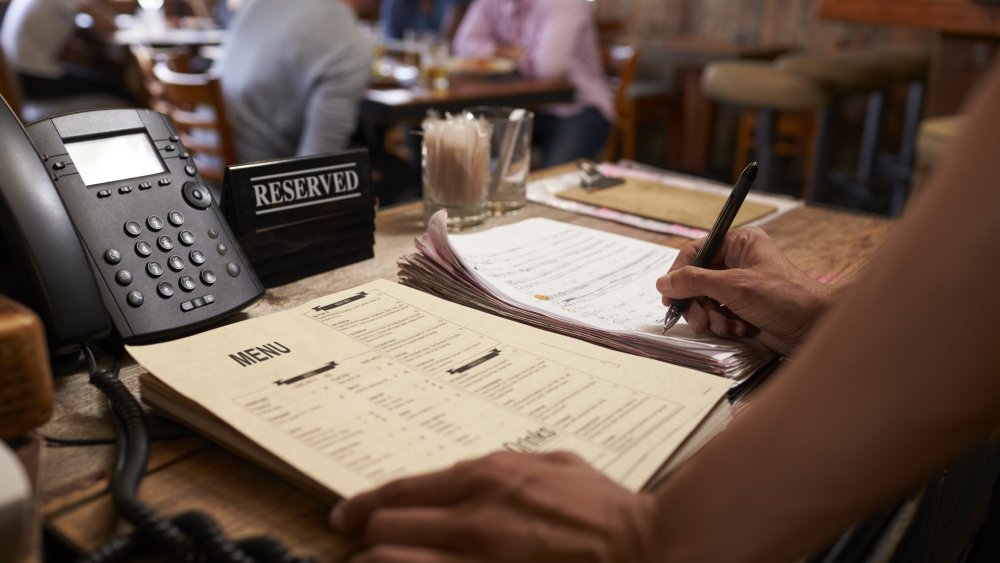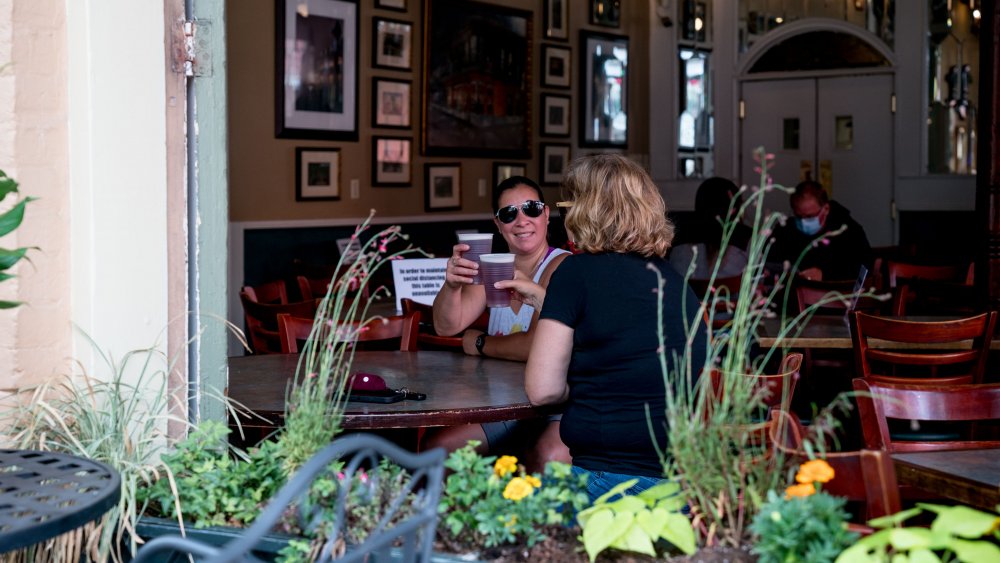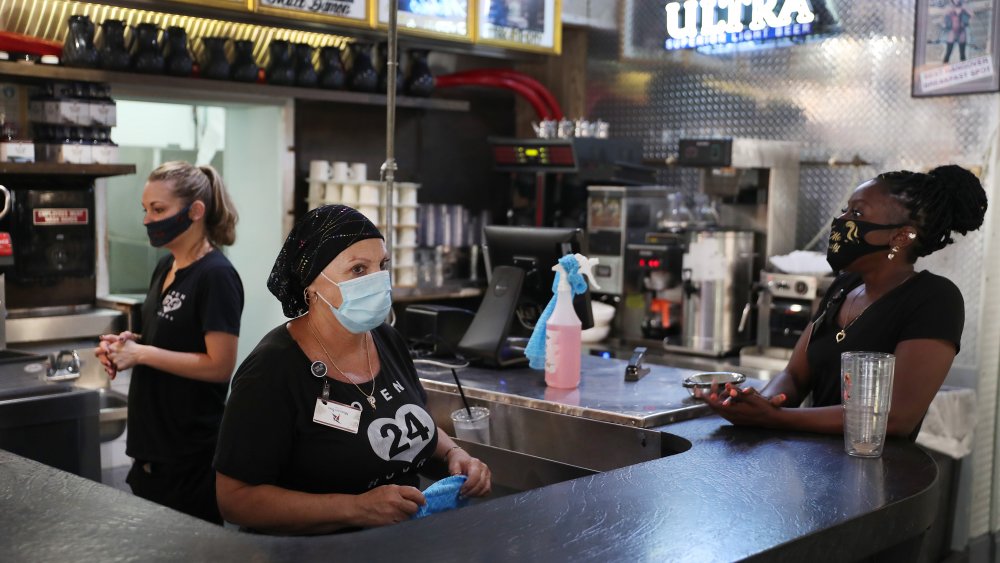The Reason Some Restaurants Will Start Collecting Your Personal Information
We give our phone numbers and/or email addresses when we make reservations. We willingly surrender our birthdates and addresses when we fill in forms to join loyalty programs which offer free desserts, coffees, or meal discount coupons. We may not be aware of it, but our favorite restaurants have been collecting our personal data for some time now, and much of that information is used to help restaurants figure out what their clients are looking for in a dining experience. "Gone are the days of trying to figure out what millennials want versus boomers. We want to know what Mary wants versus Susan, and we need an unprecedented amount of data, analytics, and machine-learning to utilize this data in the best possible way," Sherif Mityas, chief experience officer of TGI Fridays said at a food and restaurant conference in 2018 (via Eater).
In the past, data collection might have been voluntary on the part of restaurants, but things have changed in the face of the pandemic. Restaurants in Washington state will be required to collect personal data when they reopen to dine in guests, and they have to do it for more important reasons than logging customer preferences. "If the establishment offers table service, [it must] create a daily log of all customers and maintain that daily log for 30 days, including telephone/email contact information, and time in. This will facilitate any contact tracing that might need to occur," the state's proposed restaurant and tavern reopening proposal says (via Washington State Government).
Contact tracing is critical when operating under the threat of COVID-19
The CDC says contact tracing is critical to identifying and disrupting possible infection clusters, particularly in the age of COVID-19, which is highly infectious. When someone gets sick, contact tracing allows a public health official to identify everyone he or she might have come in contact with, and at a time when they might have been infectious. Health workers are then able to warn those who might have been exposed to illness as quickly as possible. To protect the identity of the potential infection source, contacts are not told the identity of the person that infected them. Most recently, contact tracing was used to identify one cluster in California, where someone threw a birthday party in Pasadena, and a coughing guest caused at least five laboratory-confirmed cases after that (via ABC).
Washington state wouldn't be the first place that requires restaurants to gather contact information from its guests to facilitate contact tracing. Different states in Germany are now either encouraged or obliged to obtain contact information from guests, and to keep them for a period of about four weeks. Some establishments in the German state of North Rhine-Westphalia can even bar customers from entering if they do not consent (via Freshfields Bruckhaus Deringer). Businesses in New Zealand are also required to keep records of their clients for contact tracing purposes (via Stuff).
Contact tracing and social distancing will help support a new normal
A contact tracing clause may be important, but it is also certain to trigger pushback. Early attempts to enforce a CDC suggestion to wear face masks in public, for instance, was met with boycott calls against companies like Costco. Some will object to the provision because it may be seen as an infringement of privacy and personal rights. Others, like the Texas Restaurant Association, believes asking restaurants to keep their guests' data puts the burden of contact tracing responsibility on the shoulders of small businesses (via KXAN).
Washington state governor Jay Inslee says the new rule is a critical part of allowing restaurants to reopen, and to serve customers in person. "If you have somebody who has become sick and they were sitting right next to a person at a restaurant, to be able to identify that person could be very valuable for their health to try to save their life, and so we put that in place," he said (via Vice). And with COVID-19 still very much in place across America, measures like those that allow for contact tracing, and others which include social distancing measures and the wearing of face masks, may be the only way to reopen businesses and resume life in a new normal.


